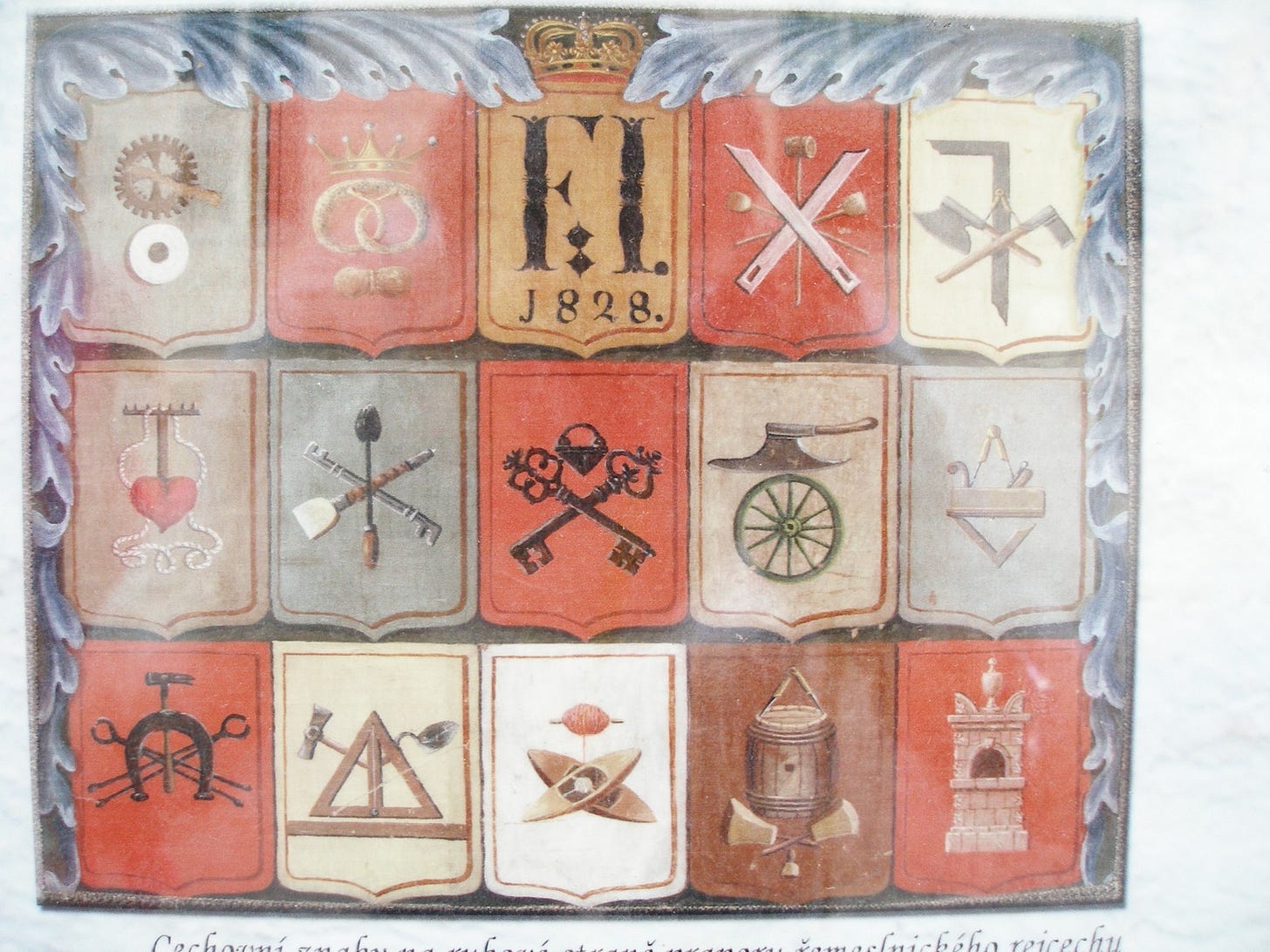Guilds are the grassroots catalyst for culture change
Guilds have been increasing people's craft skills for centuries
Some of my prior few articles started to veer away from 'cultural' and into 'technical' topics. While creating the data culture requires education and awareness of technology, let me steer back to look at how mining an organization's sometimes-hidden pockets of expertise can catalyze the cultural revolution.
Guilds have been around since high medieval times and came in a few different flavors, including craft-based guilds (Wikipedia). They started from grassroots as artisans, smiths, etc. started to band together to protect their crafts (and their collective interests). They grew in power as membership was voluntary, but not being in the guild meant not having access to clients, reputation, or funding from monarchs/patrons. The guilds themselves, though, were responsible for making sure their members produced high-quality goods and participated in apprentice programs to train new members to increase their skills and abilities.
Coat of arms of various guilds in a town in the Czech Republic. ( Wikipedia)
Modern Guilds
If we fast forward to today, we still see the concept of guilds in various trade unions and other organizations. The concept entered Agile principles in recent times, too, as the concept of Guilds, Tribes, Chapters, and Squads rose to become popular for rapid software development. Check out Arjan Bos's great article to dive deeper into how these are used in Agile. Guilds in this respect, though, hit my radar at GE (NYSE: GE) several months ago. In our Bangalore Technology Center, my colleague, Pradeep Menon, has been championing groups of employees who have decided to self-organize around their craft to connect, network, have professional conversations, improve each other's skills, and teach the rest of the employee base what it is they do...sound familiar?
I started learning from and partnering with Pradeep earlier this year to scale the guild concept for our data and analytics domain to other technology centers, such as the one I work at in Detroit, MI. Since then, several other domains have started building guilds in their areas. What I've started to find is that employees have two fundamental desires: to learn and to teach others. By giving them permission to not need permission, we're encouraging them to organize, albeit with some best practices and an overall vision to guide them. By setting some parameters, they have been able to more quickly find purpose in the work and are coming together to achieve three things for our technology hubs:
Upskill each other: professionals leading highly technical conversations that challenge each other and encourage sharing of deep knowledge
Upskill others: teaching people outside of the domain or guild area to raise the overall data literacy bar for the company
Drive the Gig economy: just like in olden days, we'd like the guilds to play a major role in sourcing and assessing who should work on certain short-term projects in order to deliver business results as well as increase individuals' skill levels
One area that I have had to help provide guidance on is who the guild members are vs. the guild customers. While I was at the Gartner Data & Analytics conference earlier this year, some of the other members of the Chief Data Officer roundtable discussed starting similar initiatives at their companies. When groups similar to the guilds at GE started and opened their doors to everyone, a lot of noise came into the system and professionals in a given space opted out because they weren't finding value for them. Although employees love to teach others about what they do, they also need to have a value proposition for themselves. With the split of goals one and two above, everyone gets something, but the guild members have a space to grow and network with each other, which is critical for motivation and to accomplish the other two goals.
How are you using employee groups to drive innovation and education within your company? Have you thought about connecting employees across your enterprise (not just within a particular division) to drive greater connection and knowledge sharing? Comment below and make sure to like this article/follow me to continue the data culture journey!
Matt Brooks is a seasoned thought leader and practitioner in data and analytics; culture; product development; and transformation.




